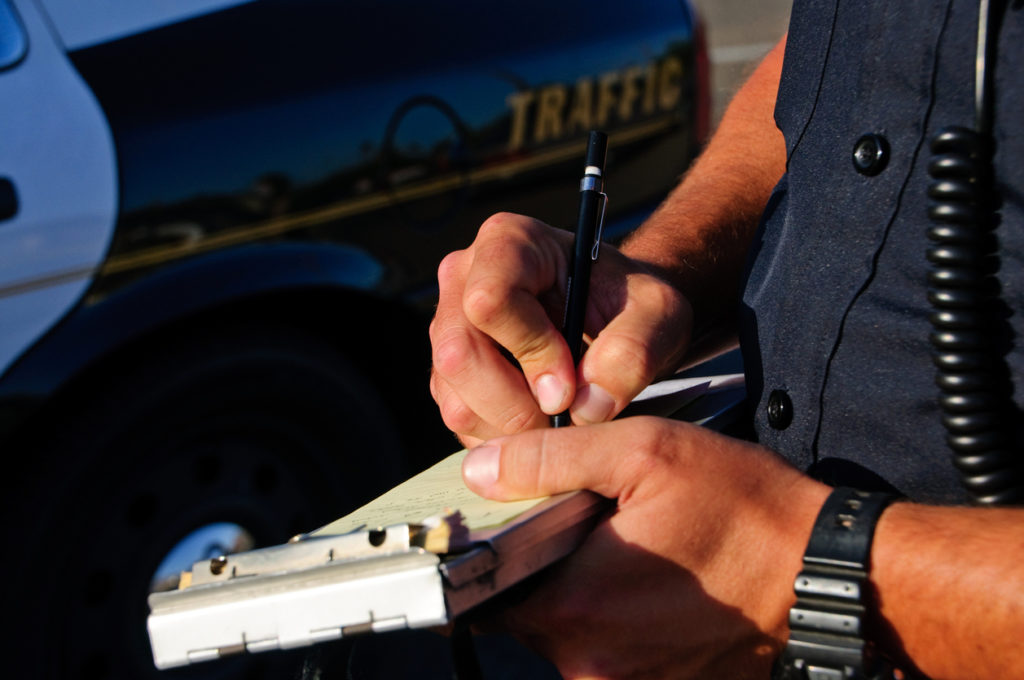
When you pursue a personal injury claim against another driver after an accident, you are claiming that this other driver is at fault for the accident, and therefore caused the damage and injuries you suffered as a result. Therefore, in order to be successful in your personal injury claim, you first need to prove (through evidence) that the other driver was at fault for the accident. The question this blog will answer is how traffic and/or criminal charges placed against another driver can help you prove they are at fault for an accident, and how these can be used as part of your personal injury action. This is especially true in provinces like Alberta that have At Fault insurance legislation.
Traffic Offences
Where the other driver is charged and convicted of a traffic offence related to the accident in question, the Courts have confirmed that this can be used as evidence of negligence on the part of that driver as part of a personal injury claim.
For example, in one Alberta case, a driver failed to stop at a stop sign, which resulted in a collision with another driver on the highway. The driver was charged with failure to come to a complete stop at a stop sign, and the driver paid the fine associated with the charge. The Court in that case determined that paying the fine was an admission of guilt, and this admission of guilt with respect to failing to stop at the stop sign was sufficient evidence against the driver to find him at fault for the accident in the personal injury action.
Criminal Offences
In addition to traffic offences, conviction of a criminal offence (ex. impaired driving) can also be used as evidence in a personal injury claim. Some courts have even gone as far as to suggest that an inference of negligence can be drawn from a criminal conviction related to an accident underlying a personal injury claim.
It is also important to note that where the other driver has been charged with a traffic and/or criminal offence, you may be subpoenaed to testify at the trial dealing with these charges. A subpoena is a court order to appear as a witness, and if served with a subpoena, you must respond to it and appear in court to testify. Your evidence as a witness may be crucial to securing a conviction on the charges in question.
Criminal Acquittals (if the person is found not guilty of the charge)
We now know that when a person is convicted of a traffic and/or criminal offence, that conviction can be used as evidence in a personal injury claim. But what happens when a person is acquitted of a traffic and/or criminal offence? Does this automatically defeat your personal injury claim? Canadian case law would seem to suggest that is not the case. This is because of the differences in the burdens of proof in criminal vs civil proceedings.
In criminal law, a person’s guilt must be proven “beyond a reasonable doubt”. In civil law (including personal injury law), a person’s liability must be proven on a “balance of probabilities”. Essentially, the burden of proof is much higher in criminal proceedings than it is in civil proceedings. Therefore, if you are unable to prove someone is guilty in criminal proceedings, you may still be able to prove they are liable in civil proceedings, as the burden of proof is much lower.
A well-known example of this in action is the O.J. Simpson trial. As many people know, O.J. Simpson was acquitted of criminal charges after his 1995 murder trial. However, at his civil trial, he was found liable for wrongful death and was ordered to pay millions in damages.
Overall, traffic and/or criminal offences certainly have a role to play in personal injury claims and can even assist you in proving your case.
Legal Guidance
If you have been involved in a motor vehicle accident (MVA) in Alberta, you need to seek legal guidance from an expert personal injury lawyer. If your injuries are the result of the other person’s negligence, then your personal injury lawyer will help gather all of the evidence including traffic offence and even criminal offences in building your personal injury claim. Moustarah & Company is conveniently located in downtown Edmonton. Book your free initial consultation with Moustarah & Company today, there are no fees until you collect, we don’t get paid until you get paid. Moustarah & Company brings extensive knowledge and unwavering dedication to every personal injury claim.

